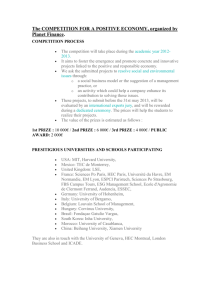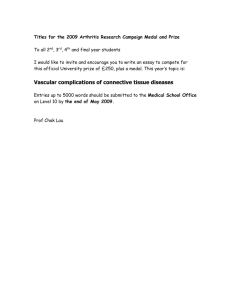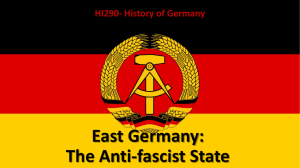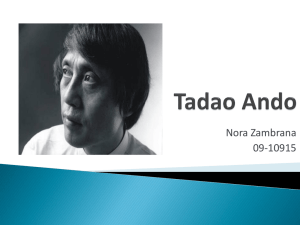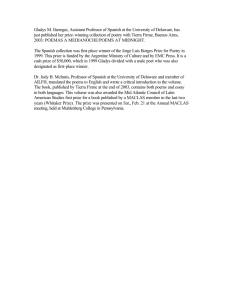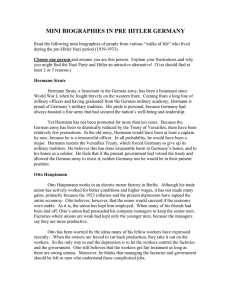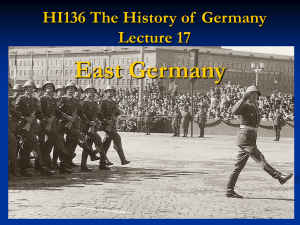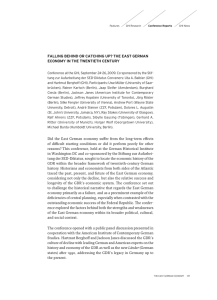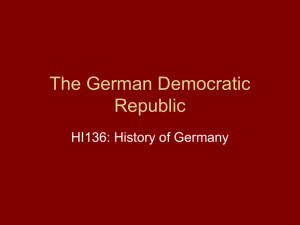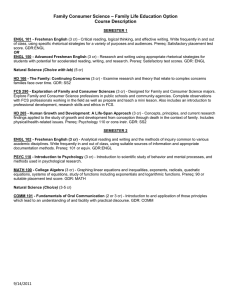German Literature In the Post WWII World
advertisement
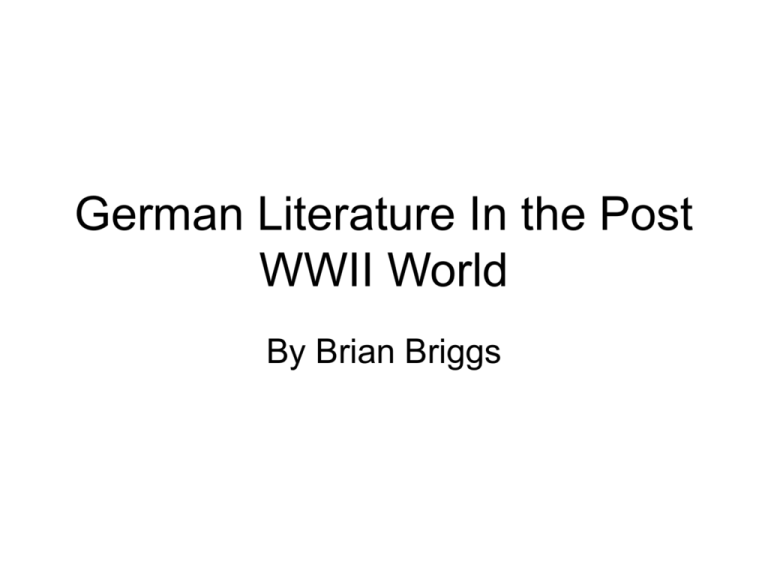
German Literature In the Post WWII World By Brian Briggs Heinrich Böll • 1917-1985 • Never Joined the Hitler Youth • Received the prize in 1972 for helping to revitalize German Literature • Works include – The Train was on Time(1949) – Traveler if you come to the Spa(1950) – And Never Said a Word(1953) – Portrait of a Lady(1971) – The Lost Honor of Katharina Blum(1974) Guenter Grass • • 1927-still alive Nobel Prize in Literature for Tin Drum – Was published in 1959, but was awarded the prize in 1999 – The “Tin Drum” is the first In set of three books called the Danzig Trilogy. The other two works are “Cat and Mouse” and “The Dog Years”. • Argued against the Reunification – Cited that a united Germany has caused some of the most brutal periods of history – “Our unified state filled the history books of the world with suffering, ruin, defeat, millions of refugees, millions of dead and a burden of crimes which we will never be able to throw off." Literature In the FDR • Immediately after the war, was mostly short stories and poetry. – Heinrich Boll was a major writer of short stories during this early period. – Major poets were Wolfgang Weyrauch, Karl Krolow, and Gunter Eich • The Literary group “Groupe 47” was founded as a sort of Cultural Association. Was not allowed to meet for a couple of years till the FDR was founded. Literature in the GDR • East German Literature was of a lower quality than its Western counterpart. – The GDR claimed to support realist authors, but often harassed them. Favored Soviet Realism over actual Realist views. • The Government used Literature contests as a way to squelch opposition writers in the fledgling days. • The novels of the GDR often pitted a good socialist farmer struggling against one or two westerners or a member of the bourgeois such as a scientist. • East German Books – Menschen an unserver Seite by Eduard Claudius – Die Spur der Steine by Erik Neutsch – Beschreibung eines Sommers by Karl-Heinz Jakobs Bibliography • Fisher, Marc. Guenter Grass Wins Nobel Prize in Literature. The Washington Post. September 30,1999. • Kirjasto. Heinrich Boll. www.kirjasto.sci.fi/hboll. 2000 • Moos, Detlev, ed. Cultural Life in the Federal Republic of Germany. Inter Nationes Bonn.1993.
